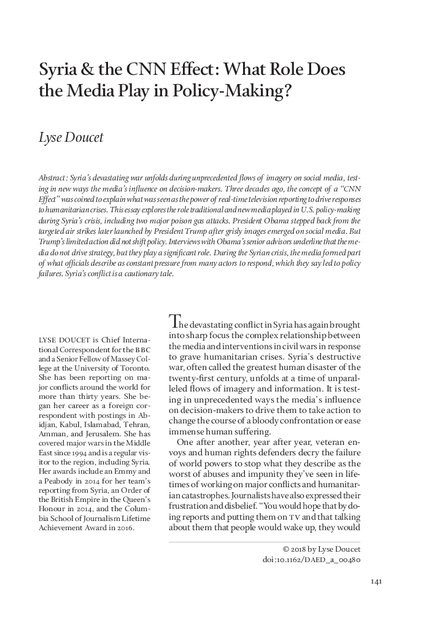
Syria's devastating war unfolds during unprecedented flows of imagery on social media, testing in new ways the media's influence on decision-makers. Three decades ago, the concept of a “CNN Effect” was coined to explain what was seen as the power of real-time television reporting to drive responses to humanitarian crises. This essay explores the role traditional and new media played in U.S. policy-making during Syria's crisis, including two major poison gas attacks. President Obama stepped back from the targeted air strikes later launched by President Trump after grisly images emerged on social media. But Trump's limited action did not shift policy. Interviews with Obama's senior advisors underline that the media do not drive strategy, but they play a significant role. During the Syrian crisis, the media formed part of what officials describe as constant pressure from many actors to respond, which they say led to policy failures. Syria's conflict is a cautionary tale.